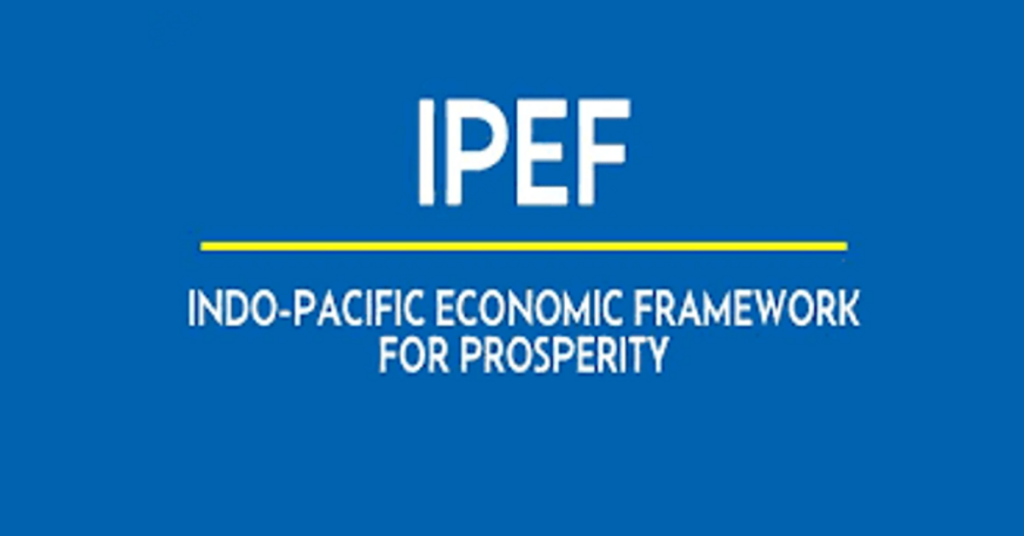
India has been elected as Vice-Chair of the Supply Chain Council, the Commerce and Industry Ministry announced on Wednesday.
In a significant milestone, the 14 partner countries of the Indo-Pacific Economic Framework (IPEF) have established three councils to enhance economic cooperation in the region. Under the Indo-Pacific Economic Framework for Prosperity (IPEF) Agreement related to Supply Chain Resilience, this step is seen as a move to find alternatives to China for the production of goods.
The inaugural virtual meetings of the Supply Chain Council (SCC), Crisis Response Network (CRN), and Labor Rights Advisory Board (LRAB) marked a major advancement in cooperation among partner countries for strengthening supply chain resilience in the region, according to the Commerce Ministry.
During these meetings, the 14 IPEF partners reaffirmed their commitment to closer cooperation to enhance the resilience and competitiveness of critical supply chains, preparing for and responding to supply chain disruptions that threaten economic prosperity while strengthening labor rights.
India is expected to play a crucial role in developing a resilient Supply Chain in the Indo-Pacific region. In June 2024, at the IPEF Ministerial meeting in Singapore, Secretary of the Department of Commerce, Sunil Barthwal, highlighted India’s potential to become a major player in the global supply chain due to its skilled manpower, natural resources, and policy support. Government initiatives are actively seeking solutions to ensure India’s participation in diverse and predictable supply chains.
As part of the Supply Chain Agreement, the IPEF partners established three supply chain bodies: a Supply Chain Council to focus on strengthening supply chains for critical sectors and goods, a Crisis Response Network to facilitate a collective emergency response to disruptions, and a Labor Rights Advisory Board to strengthen labor rights and workforce development across regional supply chains.
India shared its views on the importance of a resilient supply chain network and ongoing consultations with stakeholders on critical sectors from the perspective of national security, public health, and economic well-being. Emphasis was placed on collaboration in the skill development sector, identifying gaps, and ensuring the right skills across economies, including technical assistance for workforce development and digitalization for a resilient supply chain ecosystem.
During the meetings, each of the three supply chain bodies elected a Chair and Vice Chair for a term of two years. The elected chairs and vice chairs are:
– Supply Chain Council: USA (Chair) and India (Vice Chair)
– Crisis Response Network: Republic of Korea (Chair) and Japan (Vice Chair)
– Labor Rights Advisory Board: USA (Chair) and Fiji (Vice Chair)
The Supply Chain Council adopted Terms of Reference and discussed initial work priorities, which will be further explored at its first in-person meeting in Washington, D.C., in September 2024 during the Supply Chain Summit. The Crisis Response Network discussed priorities, including conducting a tabletop exercise, and planned its first in-person meeting alongside the Supply Chain Summit. The Labor Rights Advisory Board discussed priorities for strengthening labor rights across IPEF supply chains and focused on labor provisions in the IPEF Clean Economy Agreement and Fair Economy Agreement.
The IPEF partners emphasized the importance of the upcoming in-person meeting in Washington, D.C., in September 2024.
Launched on May 23, 2022, in Tokyo, the IPEF includes 14 partner countries: Australia, Brunei, Fiji, India, Indonesia, Japan, Republic of Korea, Malaysia, New Zealand, Philippines, Singapore, Thailand, Vietnam, and the USA. The IPEF aims to strengthen economic engagement and cooperation among its member countries, promoting growth, economic stability, and prosperity in the region.